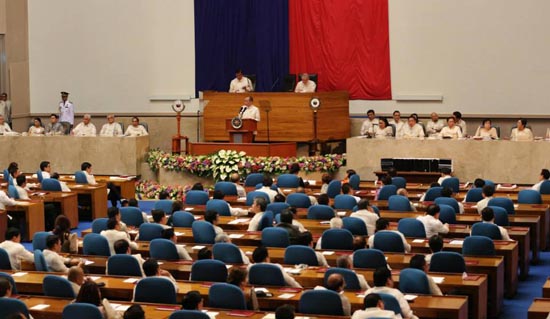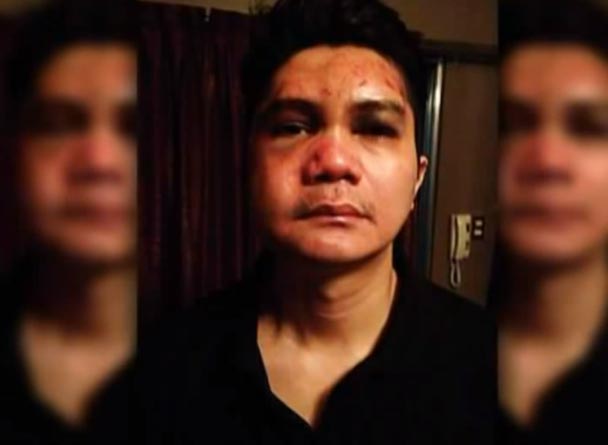#JBCwatch: Who is Atty. Raul Pangalangan ? Is he the next Chief Justice?
Notes via Leslie Flores of the Transparency and Accountability Network
ATTY. RAUL PANGALANGAN. Former UP College of Law Dean Raul Pangalangan was the last of the five candidates in Day 2’s public interview. It was Dean Pangalangan’s fourth time to be scrutinized by the Judicial Bar Council (JBC) after being nominated and shortlisted three times in the past for the same position.
Aside from being a professor of and an expert on Constitutional and International Law, Dean Pangalangan is also an advocate of judicial reform as Chair of a non- government organization, Bantay Katarungan where he helped in the petition to Commission on Election to release the names of partylist representatives which they also won. He has also been engaged in what he calls a public interest practice of law doing pro bono work on cases involving public interest. He considers these two involvements his greatest contributions to the court when appointed.
In his two- term stint as Dean of the UP College of Law, he said that one of his accomplishments was his efforts to improve the quality of life of the students by raising funds for scholarship from donors with whom he made clear that the only thing he could give in return was a thank you.
His greatest challenge, on the other hand, was when the Supreme Court appointed him as amicus counsel in the impeachment of then Chief Justice Hilario Davide. While he believed that CJ Davide was innocent from the impeachment charges and that the case was not ripe for adjudication, he was also aware that there were rules to follow. He said he was glad that the case did not prosper.
Although he spent many years in the academe, he said that he is also familiar with the actual practice of law since he has done the works of a practicing lawyer in the early years of his career and with the limited private practice allowed by UP. His one foot, he said is in the academe and the other, in the actual practice. One of the biggest cases he handled was the reclassification of San Miguel Corporation stocks.
For him, the most important role of a justice in the judicial system is to judge properly.
One of the reforms he suggested to the court is the admissibility of cellular phone evidences citing the abduction of Jun Lozada in relation to the ZTE-NBN deal and the involvement of professional checkers to improve legal education. As a PHILJA lecturer on International Law, he suggested holding of workshops and interactive, hands-on training. He added that disciplining of judges should not be left to the Court alone because it islimited with various rules.
Contrary to some of the candidates that were interviewed, Dean Pangalangan did not think there is a need for charter change even in the selection process of justices saying that it can be improved and perfected. He said he can live with the text of the 1987 Constitution and that adjustments can be done in the interpretation. If constitutional amendment pushes through, he prefers constitutional convention rather than constituent assembly. And if ever a constituent assembly is formed, he believes that Congress and Senate should vote separately and resolve conflicts through the formation of a bicameral conference committee although he suspected that this would be challenged in the court.
When asked on what should be done in case an international law is in conflict with the local law, Dean Pangalangan cited the Abbas vs Comelec which indicates that Philippine Constitution should prevail.
He was against death penalty since he did not think that it will solve crimes but the effective forensic investigation and prosecution. He added that the real penalty against criminals is to keep them in jail. He elaborated by saying that there are other ways to punish and more ways to deter crimes.
On the legality of same sex marriage, Dean Pangalangan said it is not legal because the law indicates marriage is between a man and a woman but homosexuals should be given equal protection in the law and that there should be an effort to break all barriers that discriminates homosexuals. He said that the Comelec decision excluding Ladlad as a partylist was lamentable.
On exempting 15 years and below from criminal prosecution, he said that what should be done is prepare proper jail and rehabilitation for the kids. They should not be exempted however, they should be placed in proper rehabilitation.
On how the court should respond if a judge is proven to have accepted bribe, he believes that he/she should be dismissed and disbarred and possibly charge criminally depending on the gravity of the offense but he is open to granting judicial clemency, after five years but within the bounds of law and ensuring that no special treatment is granted to them. What’s important, he said, is to stick with the standards.
Biography at UP College of Law and discussion at the RAUL C. PANGALANGAN FOR CHIEF JUSTICE MOVEMENT facebook group.
Photo via Atty. Raul Pangalangan’s Facebook page
Related Posts

State of Our Nation

June 28, 2014 is Social Media Day in the Philippines #boomPH

